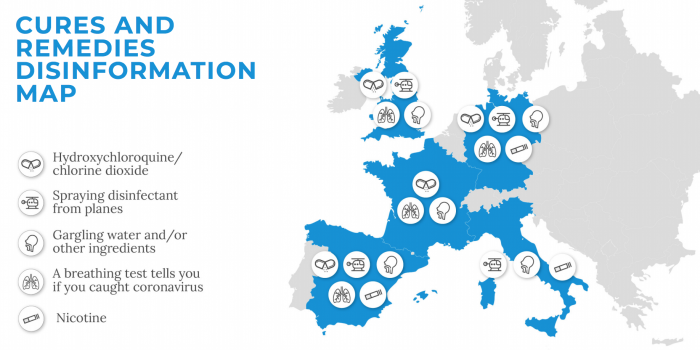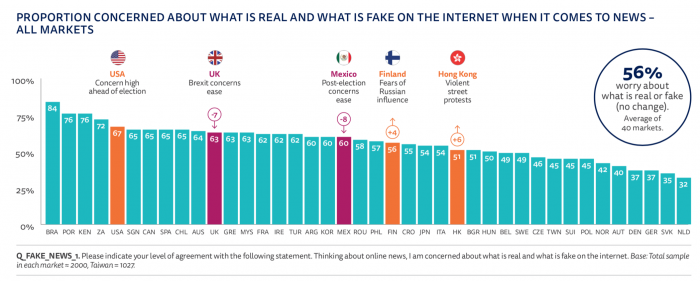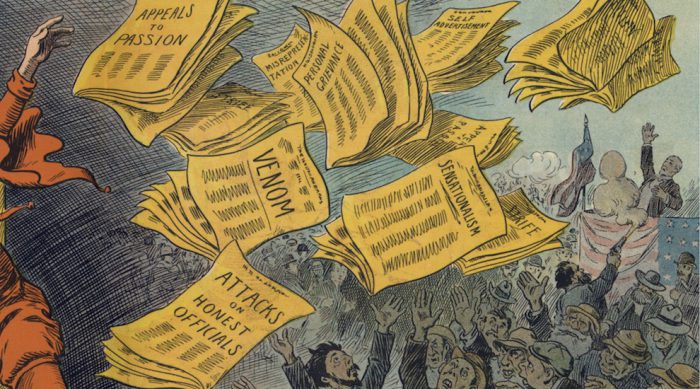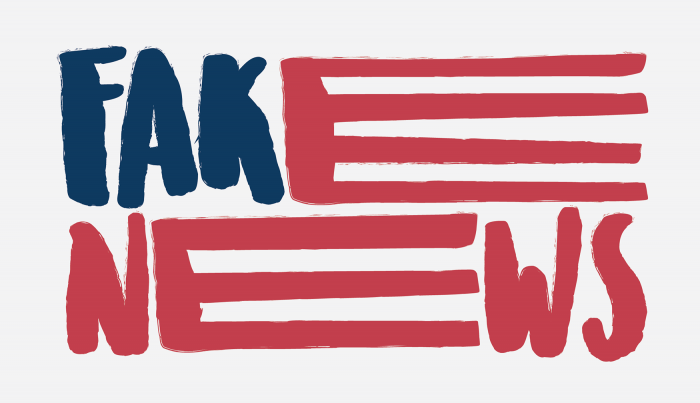Real News About Fake News
The growing stream of reporting on and data about fake news, misinformation, partisan content, and news literacy is hard to keep up with. This weekly roundup offers the highlights of what you might have missed.

Laura Hazard OwenJuly 2, 2020
Plus: Misinformation around Black Lives Matter protests and an analysis of the most-shared COVID-19 misinformation in Europe.

Laura Hazard OwenJune 18, 2020
Plus: A new public health program is looking for a “silent majority” to debunk vaccine misinformation on social media.

Laura Hazard OwenMay 15, 2020
Plus: Conspiracy theories on TikTok, and “over one-quarter of the most viewed YouTube videos on COVID-19 contained misleading information.”

Laura Hazard OwenMay 8, 2020
“Populist Twitter decries any misstep by authority as confirmation of wholesale ineptitude or corruption — as if a mistake anywhere casts doubt on expertise everywhere.” Plus: Facebook announces its oversight board, and tracking traffic back to WhatsApp.

Laura Hazard OwenJanuary 24, 2020
Plus: Facebook allows “rampant climate denialism” around the Australian wildfires, and female politicians in India face a disproportionate amount of trolling.

Laura Hazard OwenJanuary 17, 2020
Plus: Emphasizing a publisher’s name on social doesn’t seem to impact readers’ misinfo radar much one way or the other.

Laura Hazard OwenJanuary 10, 2020
Plus: YouTube would radicalize even without its algorithm, Reddit bans fakes both deep and cheap, and Facebook will let you dial down political ads.

Laura Hazard OwenDecember 13, 2019
Plus: “There is no bygone era of a well-informed, attentive public. What we have had in lieu of a well-informed citizenry is what might be termed a ‘load-bearing’ myth — the myth of the attentive public.”

Laura Hazard OwenNovember 22, 2019
Plus: “Subtly inducing people to think about the concept of accuracy decreases their sharing of false and misleading news relative to accurate news,” and the scariest deepfakes of all.

Laura Hazard OwenNovember 15, 2019
Plus: Hello “lifestyle misinformation,” hundreds of dead newspapers “revived” online to support Indian interests, and all of the fact-checking discussion you could possibly want.

Laura Hazard OwenNovember 8, 2019
Plus: “Like the experts predicted back in 2016, we did end up heading down the dystopian path.”

Laura Hazard OwenNovember 1, 2019
Plus: Cognizant is exiting the content moderation business, and fake news–debunking Lithuanian “elves.”

Laura Hazard OwenOctober 11, 2019
“Persistent debates about what constitutes ‘fake news’ and distinctions between other types of false information are mostly distracting.” Plus: A guide to covering misinformation without burning your news org or your readers, and a discussion of filter bubbles as not-really-a-thing.

Laura Hazard OwenOctober 4, 2019
Plus: All those researchers who were supposed to get Facebook disinformation data will have to wait a bit longer.

Laura Hazard OwenSeptember 27, 2019
Plus: “Newsworthiness” and how politicians are fact-checked on Facebook, and the number of countries with political disinformation campaigns has more than doubled in the past two years.













